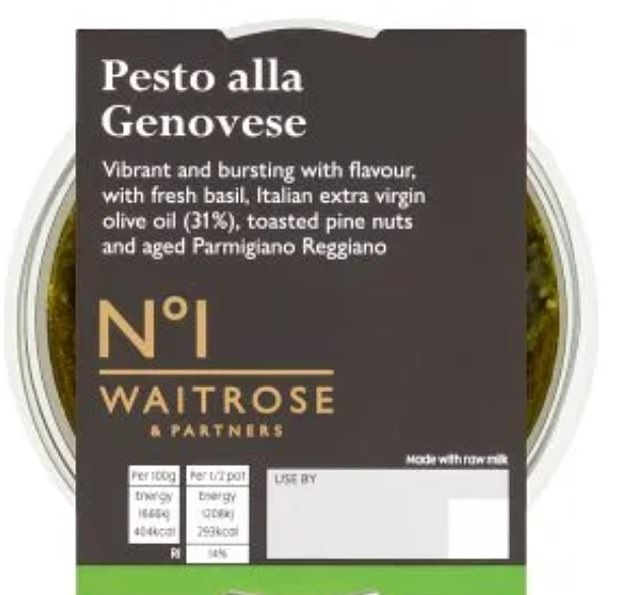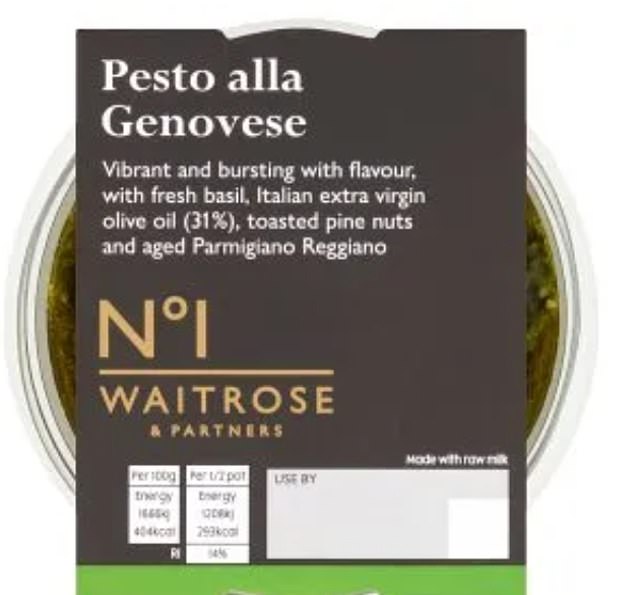Waitrose issues urgent ‘do not eat’ warning for popular pasta sauce amid fears of deadly insect infestation


Waitrose has recalled jars of its own-brand pesto over fears they could be contaminated with the potentially deadly salmonella.
The Food Standards Agency (FSA) has issued a warning that the deadly bacteria has been found in No1 Pesto alla Genovese with a best-before date of September 26.
The major supermarket chain, known for its middle-class customers, warned consumers who bought the fresh basil-based sauce not to eat it.
Waitrose has said customers can return the item, which costs £3.25, to their local branch for a full refund.

Waitrose has advised all customers to return the item to the store for a refund
In a message to customers, the supermarket said it “apologised” for the inconvenience.
Salmonella are a group of bacteria that infect the intestines of farm animals — and can affect meat, eggs and poultry.
Symptoms of infection include diarrhea, stomach cramps, and sometimes vomiting and fever.
On average, it takes 12 to 72 hours for symptoms to appear after ingesting an infectious dose of salmonella.
Symptoms usually last four to seven days and most people recover without treatment.
However, some people, especially those with underlying conditions and pregnant women, may become seriously ill and require hospitalization.
Data published in March showed that hospital admissions due to salmonella had reached a record high.
Between April 2022 and March 2023, the number of admissions for salmonella infections in England was 1,468.
Ten years ago, this figure was 76 percent lower, at 834 admissions per year.
The latest warning comes after an outbreak of a toxin called Clostridium botulinum was found in some jars of pesto sold in Paris.
Five people were hospitalized as a result of botulism. Botulism is a disease caused by a bacterium that attacks the nervous system and is fatal in 10 percent of cases.
The sauce was sold at local festivals in Indre-et-Loire, the first at the end of March 2024 and the last in September.




